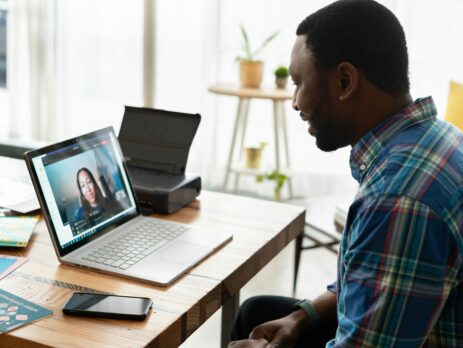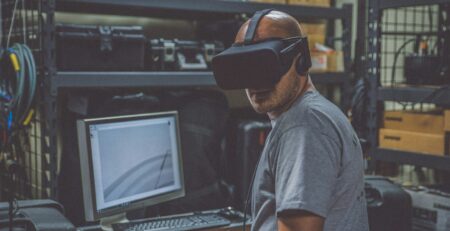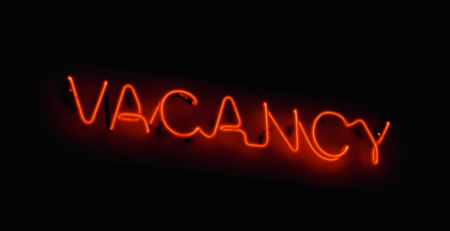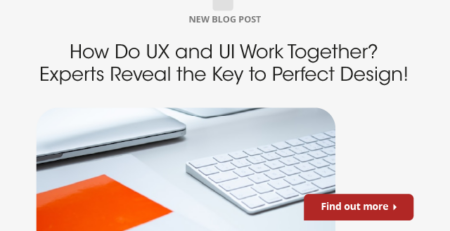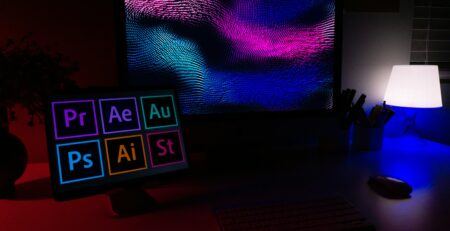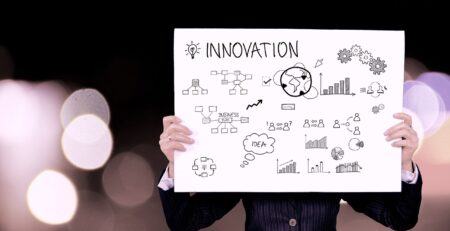Skyrocket Your Career: Insider Employee Tips for Impressive Job Interviews
Job interviews can be daunting, but they are also a golden opportunity to showcase your skills, experience, and fit for a role. Preparing effectively for an interview can significantly increase your chances of making a positive impression and ultimately landing the job. This comprehensive guide provides insider tips and strategies from experienced employees to help you excel in your job interviews and advance your career.
Understanding the interview process from the perspective of hiring managers and seasoned professionals can give you a competitive edge. These insights can help you tailor your responses, demonstrate your industry knowledge, and connect with your interviewers on a professional level. Whether you’re a recent graduate or an experienced professional seeking career advancement, mastering the art of the job interview is crucial.
One key aspect of successful interviews is thorough preparation. This not only involves researching the company and its culture but also understanding the specific requirements of the job you’re applying for. Aligning your skills and experiences with the needs of the employer can make a compelling case for why you are the ideal candidate for the position.
Another vital element is the ability to effectively communicate your value. This includes not only articulating your past achievements but also demonstrating how you can contribute to the company’s future success. Effective communication skills can help you stand out in a competitive job market and make a memorable impression on your interviewers.
Body language and presentation also play critical roles in how you are perceived during an interview. Positive body language, such as maintaining eye contact and good posture, can convey confidence and professionalism. Dressing appropriately for the interview shows respect for the company and the interviewer, and can also boost your confidence.
Handling tough interview questions with poise and assurance is another area where preparation can make a significant difference. Practicing responses to common interview questions can help you remain calm and collected during the interview, allowing you to articulate well-thought-out responses under pressure.
It’s also important to be prepared to discuss your career goals and how they align with the company’s objectives. This demonstrates your long-term interest in the company and your commitment to contributing to its success. Being able to discuss your career trajectory with clarity and confidence can significantly enhance your candidacy.
Asking insightful questions is another strategy that can help you stand out. This shows your interest in the role and the company, and it gives you valuable information to help you decide if the job and the company culture are the right fit for you.
Finally, following up after the interview with a thank-you note reiterates your interest in the position and can keep you top of mind for the hiring manager. This small gesture can make a big difference in how your professionalism is perceived and can sometimes tip the scales in your favor.
With these insider tips and strategies, you are well-equipped to make a strong impression in your next job interview. Remember, each interview is a learning experience, and each one brings you one step closer to your career goals. Now, let’s dive into some of the most commonly asked questions about acing job interviews and how you can use these insights to your advantage.
What are the key elements of effective interview preparation?
Effective interview preparation involves several key elements that can set you apart from other candidates. First, researching the company’s history, culture, and recent developments is crucial. This shows your genuine interest in the organization and provides you with valuable insights that can be woven into your responses.
Understanding the job description in detail allows you to tailor your experiences and skills to the specific needs of the role. This alignment between your qualifications and the job requirements demonstrates to employers that you are a perfect fit for the position.
Practicing common interview questions is another essential preparation step. Tools like Indeed’s interview tips can provide you with sample questions and answers to help you formulate your responses.
Mock interviews with friends or mentors can also provide a safe space to practice your answers and receive feedback. This practice can help reduce anxiety and improve your confidence during the actual interview.
Preparing questions to ask the interviewer not only shows your interest in the role but also helps you assess if the company is the right fit for you. Questions could focus on company culture, team dynamics, or specifics about the projects you would be working on.
Gathering and organizing your professional documents, such as resumes, cover letters, and portfolios, ensures that you are ready to present all necessary information succinctly and professionally during the interview.
Planning your attire and route to the interview location in advance can help avoid last-minute stress and ensure you arrive on time, composed, and ready to impress.
Finally, a good night’s sleep and a healthy meal before the interview can help you stay alert and focused, allowing you to perform at your best.
How can I demonstrate my suitability for the job during an interview?
Demonstrating your suitability for a job during an interview requires a strategic approach to communicating your skills and experiences. Start by clearly understanding the key competencies and skills required for the role, as outlined in the job description. Align your past experiences and achievements with these requirements by preparing concise stories that illustrate your capabilities.
Use the STAR method (Situation, Task, Action, Result) to structure your responses effectively. This technique helps you deliver clear and compelling answers that demonstrate your problem-solving skills and ability to achieve results.
Show enthusiasm for the position and the company. Expressing genuine interest and excitement about the opportunity can make a strong impression on the interviewer and set you apart from other candidates.
Highlight your soft skills, such as teamwork, communication, and adaptability, which are often just as important as technical skills. Provide examples of how you have successfully used these skills in past positions.
Ask insightful questions about the role and the company. This not only shows your interest but also demonstrates your proactive approach to understanding the position and the business.
Discuss how you can contribute to the company’s goals and future projects. Linking your skills and experiences to the company’s strategic objectives can show how you are uniquely positioned to contribute to its success.
Be prepared to discuss industry trends and how they impact the company. This shows your industry knowledge and your ability to think strategically about the role you are applying for.
Finally, be honest about your areas for improvement but frame them positively by discussing how you are actively working to enhance these skills. This shows self-awareness and a commitment to professional growth.

What are some strategies for answering difficult interview questions?
Answering difficult interview questions can be a daunting aspect of any job interview. However, with the right strategies, you can handle these questions with confidence and poise. Begin by anticipating challenging questions you might face, especially those related to your weaknesses or gaps in your employment history.
Use the pause effectively. Taking a moment to think before you answer shows that you are thoughtful and deliberate in your communication. It’s better to deliver a well-considered response than to rush into an answer that you might regret.
Employ the STAR method to structure your answers to behavioral questions. This approach helps you provide concrete examples and demonstrates your problem-solving capabilities.
Be honest and transparent in your responses, especially when discussing past challenges or failures. Acknowledge the situation, but focus on what you learned and how it has made you a better professional.
Practice stress management techniques before the interview, such as deep breathing or positive visualization, to help maintain your composure under pressure.
Reframe negative experiences into positive outcomes. For instance, if asked about a conflict at work, discuss how you used the opportunity to develop your conflict resolution skills.
Keep your answers focused and relevant. Avoid going off on tangents that could make you seem unfocused or unprepared.
Prepare to discuss salary expectations by researching typical salary ranges for the position and region. Websites like iCreatives staffing offer insights into competitive salary benchmarks.
Finally, practice answering these difficult questions with a friend or mentor who can provide feedback and help you refine your responses.
How should I handle questions about my previous job experiences?
Handling questions about your previous job experiences is crucial for demonstrating your suitability for the new role. Start by reviewing your resume and preparing to discuss each listed experience in detail. Focus on the responsibilities that are most relevant to the job you’re applying for.
Be prepared to explain any gaps in your employment history honestly and positively, focusing on what you learned or achieved during those periods. For example, if you took time off to pursue education, discuss the skills and knowledge you gained.
Discuss your achievements quantitatively. Use numbers and statistics to highlight how you positively impacted your previous employers. For example, “Increased sales by 20% within six months through strategic marketing initiatives.”
When discussing challenges or conflicts in previous roles, focus on the solutions and outcomes rather than the problems. This shows that you are solution-oriented and capable of handling difficulties professionally.
Avoid speaking negatively about previous employers or colleagues. This can be seen as unprofessional and could raise concerns about your ability to maintain positive workplace relationships.
Highlight any leadership experiences and the results you achieved in those roles. This can be particularly important if you are applying for a managerial or team-leading position.
Be ready to discuss how your previous job experiences have prepared you for the specific requirements of the new role. This helps the interviewer see the direct relevance of your background.
Use industry-specific language to demonstrate your expertise and familiarity with the field. However, ensure that your explanations are clear and accessible to non-specialists, as not all interviewers may have a technical background.
Prepare to discuss how you have grown professionally over the years. This could include new skills you’ve developed, additional responsibilities you’ve taken on, or professional courses you’ve completed.
Finally, be enthusiastic and positive about your past experiences, as this reflects your passion for your career and eagerness to bring that enthusiasm to a new role.
What are the best practices for following up after an interview?
Following up after an interview is a critical step in the job application process. It shows your interest in the position and can help keep your application top of mind for the hiring manager. Start by sending a personalized thank-you email within 24 hours of the interview. Mention specific topics discussed during the interview to demonstrate your attentiveness and continued interest.
Keep your follow-up email concise and professional. Reiterate your enthusiasm for the role and the company, and express your appreciation for the opportunity to interview.
If you discussed particular next steps during the interview, such as providing additional documents or references, ensure you include these in your follow-up communications.
If you haven’t heard back within the timeframe initially discussed, it’s appropriate to send a polite follow-up email to inquire about the status of your application. This shows your proactive nature and interest in the position.
Connect with the interviewer or company representatives on professional networking sites like LinkedIn. This can help keep you on their radar and build your professional network, regardless of the outcome of this particular interview.
Be patient and respectful of the hiring process. While it’s important to follow up, excessive or overly aggressive communication can be seen as a negative.
Prepare to potentially engage in further discussions or interviews. Sometimes, a follow-up can lead to additional questions or a second interview.
Use any feedback received during the follow-up to improve your interview skills. Whether it’s positive or constructive, feedback is a valuable tool for your professional development.
Finally, if you are not selected for the position, respond graciously. Express your disappointment professionally and reiterate your interest in future opportunities at the company. Maintaining a positive relationship can benefit your career in the long run.
How can I use body language to enhance my interview performance?
Body language plays a crucial role in communication, especially during job interviews where first impressions are vital. Start by practicing a firm, confident handshake, which can set a positive tone for the interview. Ensure your handshake is neither too weak nor overly aggressive.
Maintain good eye contact throughout the interview. This shows confidence and interest in the conversation. However, be sure to balance this with natural breaks in eye contact to avoid staring, which can be perceived as aggressive or uncomfortable.
Adopt an open posture. Avoid crossing your arms or legs excessively, as these can be perceived as defensive gestures. Instead, keep your limbs relaxed to convey openness and receptiveness.
Nod and smile appropriately to show engagement and positivity. These small cues can make you appear more approachable and personable.
Monitor your facial expressions. They should be appropriate to the content of the conversation. For example, smiling when discussing your achievements can reinforce the positive message.
Avoid fidgeting, which can be distracting and convey nervousness. Practice keeping your movements smooth and controlled.
Use hand gestures moderately to emphasize points, but be mindful not to overdo it, as excessive gesturing can be distracting.
Practice your posture, both sitting and standing. A straight, yet relaxed posture conveys confidence and professionalism.
Be mindful of your tone of voice. It should be clear, confident, and at a moderate pace. Avoid speaking too quickly, which can make you seem nervous, or too slowly, which can make you seem uninterested.
Finally, practice these body language tips in mock interviews or in front of a mirror to become more aware of your non-verbal cues and to make any necessary adjustments before the actual interview.
What should I wear to an interview to make the best impression?
Choosing the right attire for an interview is crucial as it plays a significant role in the first impression you make. The key is to dress professionally and appropriately for the industry and company culture. For corporate settings, traditional business attire, such as a suit and tie for men and a suit or professional dress for women, is typically expected.
For less formal industries, such as tech or creative fields, business casual is often more appropriate. However, it’s important to err on the side of being slightly overdressed rather than too casual.
Research the company’s dress code before the interview. This can usually be done by visiting the company’s website, looking at employee photos, or even asking the HR representative when scheduling the interview.
Ensure your clothes are well-fitting and in good condition. Avoid wearing anything too tight, too loose, or that shows wear and tear, as these can give an unkempt appearance.
Choose neutral colors and simple patterns. Loud colors and busy patterns can be distracting and may not convey the professional image you want to project.
Pay attention to details. Ensure your shoes are polished, your clothes are ironed, and your accessories are understated. Small details can make a big difference in your overall appearance.
Avoid strong perfumes or colognes, as these can be overpowering in a close environment like an interview room.
Make sure your hairstyle is professional and neat. For longer hair, consider tying it back to avoid playing with it during the interview, which can be distracting.
Keep makeup conservative and professional. It should enhance your features without being too bold or distracting.
Finally, carry a professional bag or briefcase. This should be neat and organized, containing only the essentials for the interview, such as extra copies of your resume, a notepad, and a pen.
Conclusion
Conclusion
In conclusion, acing a job interview, especially when working with a creative staffing agency like icreatives staffing, requires a blend of preparation, communication skills, and the right attitude. By understanding and implementing the insider tips provided by experienced employees, you can enhance your interview performance and increase your chances of success. Remember, each interview is an opportunity to learn and grow. With the right approach, you can turn any interview into a stepping stone towards achieving your career aspirations.
From preparing thoroughly to following up with a professional thank-you note, every step you take should be aimed at showcasing your best qualities and fit for the role. Utilize these strategies to not only impress your potential employers but also to build confidence in your abilities to thrive in your desired career path. Partnering with a creative staffing agency like icreatives staffing can provide you with the tailored guidance and opportunities to meet creative industry leaders.
Always remember that the goal of any job interview, particularly when facilitated by a creative staffing agency, is to demonstrate that you are the best candidate for the position. By focusing on aligning your skills and experiences with the company’s needs, you can make a compelling case for your candidacy. Keep these tips in mind, and you’ll be well on your way to securing your next job and advancing your career.
Good luck, and remember that preparation is the key to success in any job interview. By taking the time to prepare effectively, you can enter any interview with confidence and leave a lasting impression that could lead to your next great job opportunity.

